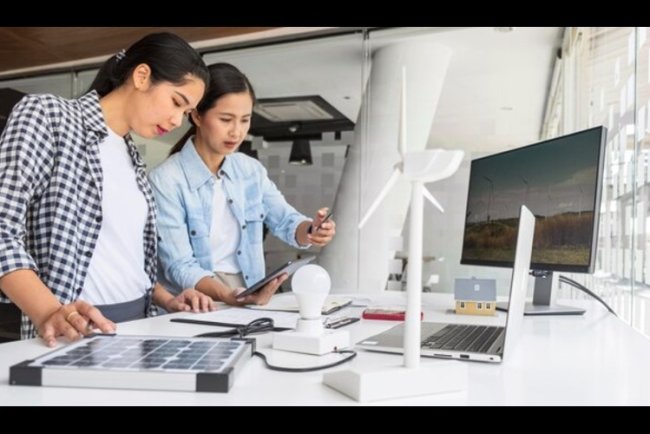Singapore to Finalise First ASEAN Carbon Trading Deal Under Article 6
Singapore is preparing to finalise its first Article 6.2 carbon credit deal with an ASEAN partner, strengthening its position in global carbon markets and advancing its net-zero targets through bilateral climate cooperation.

Singapore will complete its first Article 6.2 carbon credit transaction under the Paris Agreement with an ASEAN member state in the next few months. The action would make Singapore the first in Southeast Asia to operationalise a bilateral carbon trading agreement under the international climate regime.
The action is part of Singapore's broader effort to deliver on its net-zero ambitions and assist other developing nations with decarbonisation. Article 6.2 of the Paris Agreement assists countries in exchanging the reduction of emissions via bilateral agreements, allowing for the occurrence of Internationally Transferred Mitigation Outcomes (ITMOs). The arrangements give countries such as Singapore the capacity to buy carbon credits from collaborating countries where there is emission reduction activity, so long as both sides can reach a mutual agreement regarding double counting and transfer of stringent accounting standards.
To date, Singapore has executed more than 20 Memorandums of Understanding (MOUs) with foreign countries, five of which are from ASEAN countries—Cambodia, Laos, the Philippines, Vietnam, and Malaysia. Seven MOUs have also evolved into legally enforceable implementation agreements that lead to high-volume trading.
Among measures to enhance carbon credit credibility and transparency, Singapore has partnered with credible standard institutions like Verra and Gold Standard. These partnerships, since 2023, have had an objective of creating a national crediting mechanism that will be Article 6.2 compliant. The mechanism will be aligned with international standards and uphold environmental integrity.
Under the first public tender for Article 6.2 carbon credits in March this year, Singapore attracted more than 17 bids from both local and foreign developers. The bids gave the government a clear signal of the quality and range of prices of credits in the new carbon market.
In a bid to evaluate the worthiness of in-bound carbon credits, Singapore has issued a recent tender to appoint a ratings agency. This will assist in availing independent tracking of projects on environmental performance, additionality, and permanence. BeZero Carbon, Sylvera, CarbonX, Calyx Global, and MSCI are shortlisted to do this job. The appointment of the chosen agency is imminent.
The Article 6.2 carbon deals are designed to achieve not only emissions reductions, but sustainable development co-benefits in host nations. These could comprise investment in renewable energy technologies, afforestation and reforestation, and the uptake of clean technologies. For Singapore, these bi-lateral agreements offer a channel through which hard-to-abate emissions can be offset while assisting partner countries to raise climate finance and clean energy investment.
Singapore's ambition to pursue carbon trading has a basis in its domestic climate policy. In 2019, Singapore implemented a carbon tax, being the first Southeast Asian nation to do so. The carbon tax of SGD 5 per tonne of emissions will increase progressively to SGD 50–80 by 2030. Such a carbon pricing policy stimulates local industries to make emission reductions and generates demand for high-quality carbon offsets, such as Article 6 traded carbon offsets.
Its active participation in Article 6 markets is also aligning with its climate policy within the country. Singapore is on track to meet net-zero emissions by the year 2050. Singapore has also pledged to cut emissions by roughly 60 million tonnes in 2030. The carbon trading trajectory is meant to facilitate cuts at home and give the nation courage to attain its ambition.
Seamless execution of the first Article 6.2 transaction in ASEAN would be the coming of age of the region and of Singapore. It would be a showcase of operational capability and regulatory maturity in an evolving space everywhere in the world. With nations everywhere exploring carbon markets as a way to complement their climate actions, the Singaporean approach can serve as a blue-print to others who want to harmonize environmental care with economic competitiveness.
The move is made at a time when there is increasing need for carbon markets, though problems of credit quality and transparency are issues yet to be addressed. Through having strong frameworks and regulation, Singapore hopes to address these problems while getting international carbon trading standards more embraced.
The future carbon trading agreement, once signed, will entail close coordination with the partner nation to make emission reductions Article 6.2 compliant. It will entail corresponding adjustments—an accounting procedure that prevents emissions reductions transferred to Singapore from being used in domestic greenhouse gas goals of the seller country.
Singapore's participation under Article 6.2 will also have second-order effects, including the inducement of green employment and the inducement of technology transfer. It may also induce regional cooperation on mitigation of climate change and green development, especially for ASEAN member states looking for external financing of environmental initiatives.
The government stated that more deals will then follow after the first deal has been inked and the support mechanisms have become functional. All this is under a bigger picture to position Singapore as a hub for carbon services and green finance in the region.
Success relies on establishing trust, openness, and environmental contributions. With a first Article 6.2 deal anticipated in the months ahead, Singapore is becoming an early adopter of governed carbon trading and a model for Southeast Asia collaborative climate action.
Source:
Grant Brown, "Singapore eyes first Article 6 carbon deal in ASEAN in coming months – official", Eco-Business, 16 July 2025
What's Your Reaction?

















